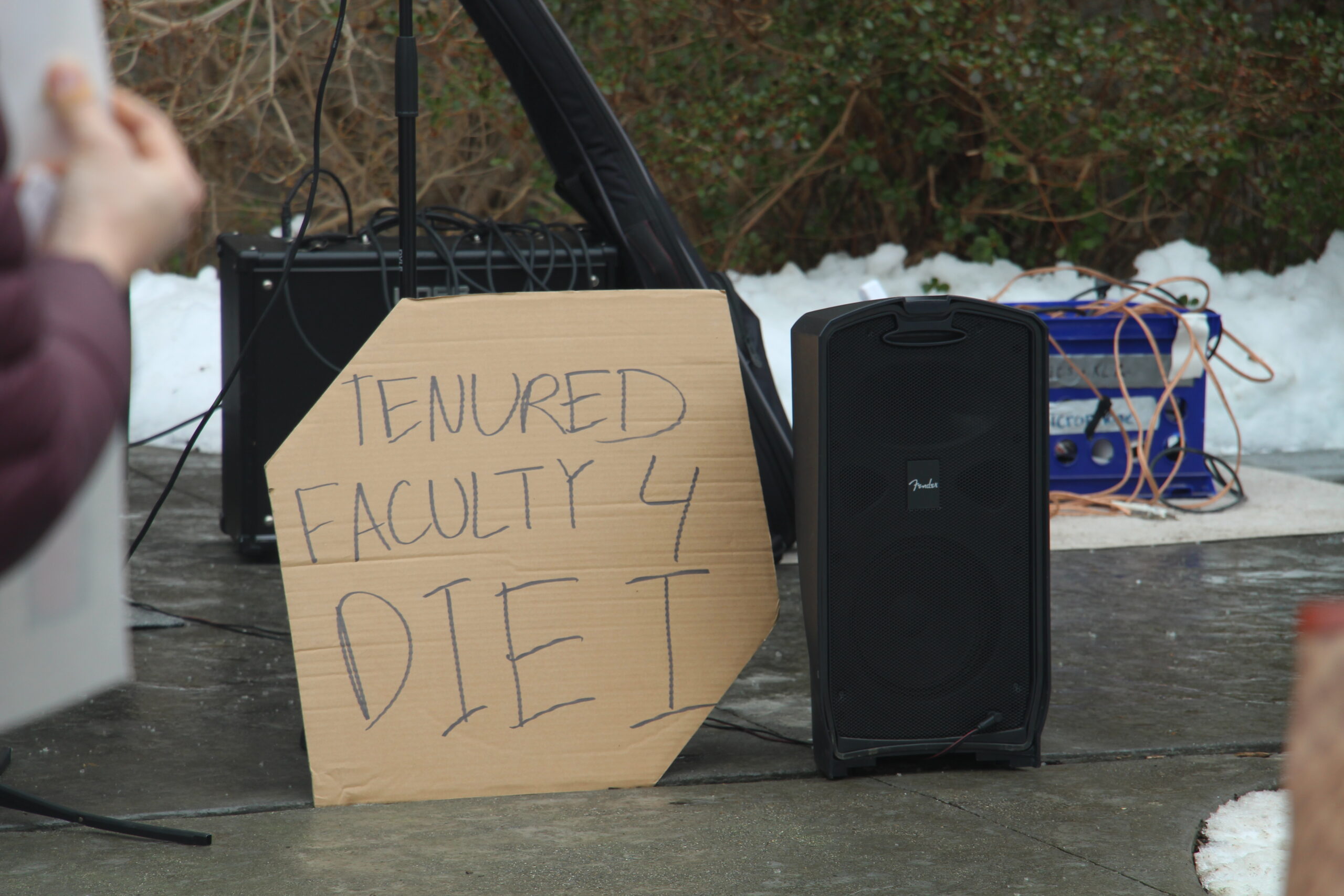Last year I saw The Vagina Monologues for the first time. I found the performance clever and provocative, and I thought that it succeeded in igniting a conversation on women’s sexuality, treatment and empowerment. This year, I saw very same performance at the very same venue and was confused.
It’s difficult to critique any performance, and even more difficult when that performance is interlaced with activism and is produced, directed and acted out by a group of talented women, many of whom are my close friends. But—taking a cue from the monologues themselves—just because a particular topic is difficult to discuss, that doesn’t mean it’s not worth discussing.
Though I’m certainly no theater buff, I’ve seen my fair share of plays and musicals. I saw “Wicked” on Broadway and “War Horse” at Lincoln Center, and even once saw Jude Law play an eerily convincing Hamlet at some theater that I can’t remember the name of. Each performance was beautiful and moving in its own way, but I have no intention of sitting through any one of them for a second viewing. During this year’s “Vag Mons,” I found entertainment in the compelling performances, and I was especially thrilled to see my friends moan and shudder an “unexpected triple orgasm” (among other variety) on stage but, for the most part, I was just bored. Could you imagine if the theater department produced the same play each year, or if the dance club choreographed the same dances semester after semester? Entertainment is only entertaining if kept fresh—it must offer the promise of something unexpected.
Except for the final two monologues, the show has not changed since it was first written in 1996. 1996, when Bill Clinton was elected for his second term in office and the 18-year manhunt for the Unabomber ended with the arrest of Ted Kaczynski. 1996, when this year’s senior class was turning four and the freshman were still being born. Though it’s important not to lose ground on the progress that’s been made in women’s rights and equality here in the U.S. and abroad, anyone involved in The Vagina Monologues should be thinking about how to move the conversation forward, not repeating prose two decades old.
“But it’s activism!” Yes, it’s impossible to remove The Vagina Monologues performance from its larger, humanitarian initiative. However, I wonder about how effective a play could be as a means to deliver the essentially feminist message (which I wholeheartedly support) that the Monologues stand for. Looking around Evans Hall I saw students and faculty, many of whom had likely seen the performance before. The rest of the audience consisted of parents who, like me, were there to lend their support to the cast. So when the audience was called upon to end female genital mutilation and to take ownership of the derogatory words and references surrounding women’s sexuality, I found myself comparing the situation to that of “Facebook activism.”
When you “like” any given Upworthy post you’re only showing your support at the most surface level; there’s no real investment of time or money or hard work. Is attending The Vagina Monologues any different, other than the nominal price of the ticket and duration of the performance?
Ultimately and undeniably, The Vagina Monologues bring more good than harm to the Connecticut College campus. But I think it’s important for future classes to consider alternative ways of promoting the same agenda here and now – and many students already have. Last month’s Pussy Pow Wow and discussions of producing Connecticut College Monologues offer the promise of a contemporary discussion surrounding women’s sexuality and gender inequality for an audience that’s ready to move forward.










